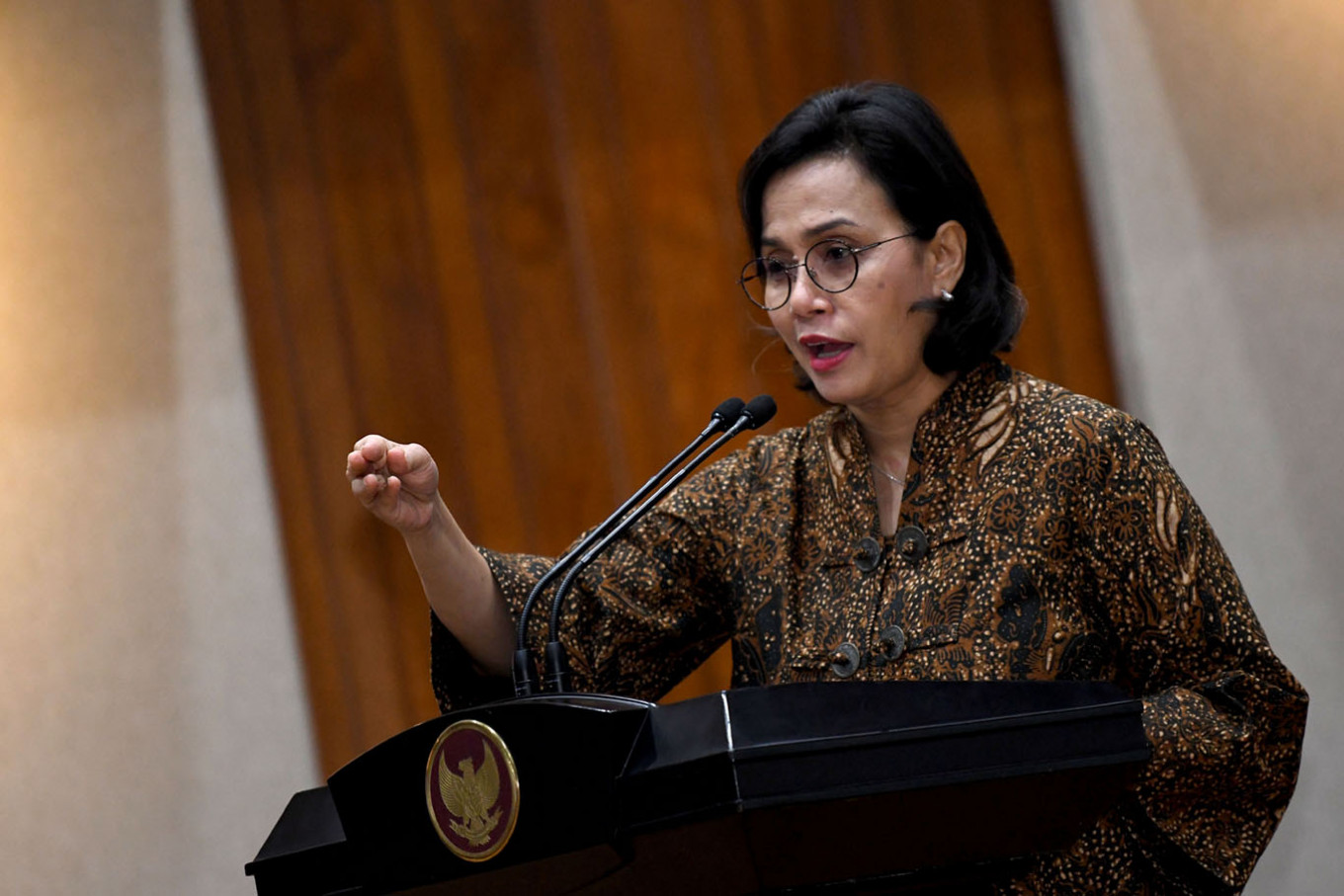Deficit jumps to $54.1b as virus debt piles up
As vaccines may only become available in the second half of next year, the pandemic will continue to limit economic recovery, said Institute for Development of Economics and Finance executive director Tauhid Ahmad.
Change Size

I
ndonesia’s budget deficit has increased to Rp 764.9 trillion (US$54.11 billion) as of October, with the government borrowing a record amount to bring the economy out of recession and combat a raging coronavirus outbreak.
The epidemic has eroded state revenue and spurred government spending, causing the budget deficit to equal 4.67 percent of GDP. The figure, however, remains within the government’s forecast of a record high 6.34 percent deficit.
“Our fiscal policy will be directed to turn the economic rebound into a sustained and strong economic recovery,” Finance Minister Sri Mulyani Indrawati said on Monday, adding that the government would continue to use the budget to ensure recovery while handling the pandemic.
“We cannot separate COVID-19 cases and economic recovery as the rise in confirmed cases has an adverse impact on the recovery,” she went on to say. “The main task is maintaining economic activity without worsening the outbreak. Therefore, COVID-19 handling is crucial.”
Read also: Indonesia sees 3.8% foreign debt growth in Q3, BI says debt-to-GDP still 'healthy'
Indonesia plunged into recession for the first time in two decades as the economy shrank 3.49 percent in the third quarter after recording 5.32 percent in the second quarter. The government expects the economy to contract 0.6 percent to 1.7 percent this year.
As of October, the government collected only Rp 1.27 quadrillion in state revenue, a 15.4 percent year-on-year (yoy) decline due to falling tax revenue. Tax revenue, the main source of income for the government, fell 18.8 percent yoy to Rp 826.9 trillion because of a sharp fall in import taxes and the implementation of a corporate income tax cut expected to improve economic activity.
At the same time, state spending rose 13.6 percent from the same period last year to Rp 2.04 quadrillion or 74.5 percent of the year’s target. Central government spending rose nearly 20 percent yoy to Rp 1.34 quadrillion during the period driven by higher social and stimulus spending.
“The government’s social aid spending has succeeded in reducing the impact of the pandemic and prevented the poorest communities from becoming worse off,” Sri Mulyani said, claiming that the government’s social protection program had saved 3.4 million people from falling into poverty.
To make up for the gap between state spending and revenue, the government borrowed Rp 958.6 trillion in the form of government bonds issuances and loan withdrawals from multilateral organizations. The figure was starkly 143.8 percent higher than the same period last year.
“Indonesia’s debt remained below average among emerging countries as we continue to maintain economic [recovery] while also maintaining fiscal sustainability,” Sri Mulyani said, projecting that the country’s debt might reach 37 percent of GDP this year, which would be below the 50 percent of GDP average among emerging countries.
The government has allocated Rp 695.2 trillion in stimulus aimed at strengthening the healthcare system and supporting economic recovery. As of Nov. 18, the government has spent only 58.7 percent of the stimulus as the country’s confirmed COVID-19 cases continue to soar.
Indonesia reached a grim milestone on Monday as the country surpassed half a million coronavirus cases since the first two cases were announced in early March. Official data shows the country recorded more than 502,000 infections and 16,002 deaths as of Monday, the highest number in Southeast Asia.
President Joko “Jokowi” Widodo called on Monday to reduce public holidays in December over concerns of a further rise in cases, which may further limit economic activity.
Read also: President seeking to shorten year-end long holiday, says minister
“During public holidays, virus cases usually rose but economic indicators did not improve,” Sri Mulyani said.
As vaccines may only become available in the second half of next year, the pandemic will continue to limit economic recovery, said Institute for Development of Economics and Finance (Indef) executive director Tauhid Ahmad.
“The government needs to impose extraordinary measures to handle the pandemic,” he said on Monday. “The government should boost social and infrastructure spending to stimulate consumer demand, create jobs and help combat poverty.”
Bank Permata economist Josua Pardede also called on the government to implement strict health protocols to balance economic recovery with pandemic handling, in addition to speeding up spending in the fourth quarter.
“The government needs to ramp up spending by providing further help to the lower-middle income class and micro, small and medium enterprises to maintain purchasing power and ensure business survival,” he said on Tuesday. “That will make the country more productive in expediting recovery.”









